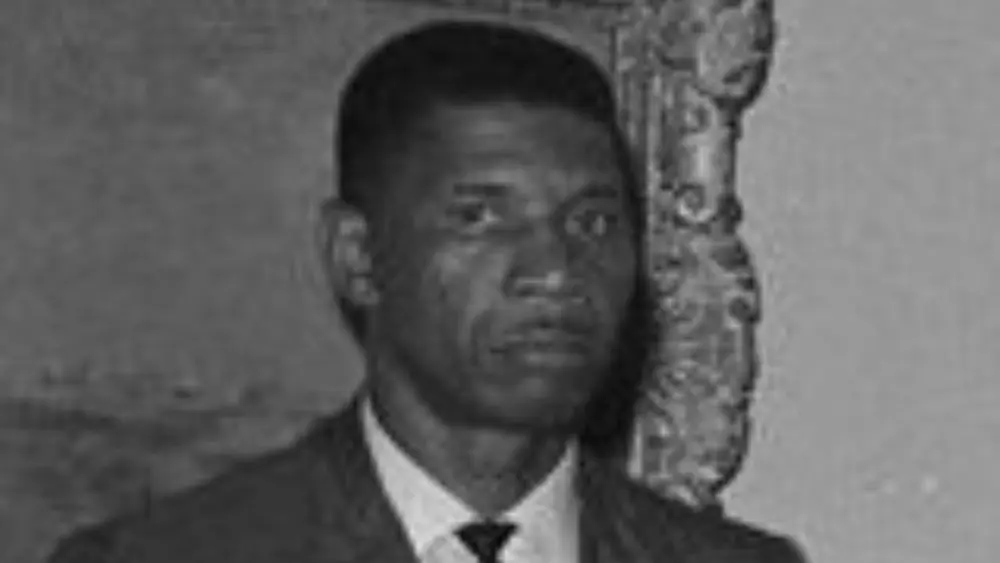Medgar Evers, a civil rights leader, embodies resilience in the fight against systemic racism and injustice, an enduring symbol. Born in Decatur, Mississippi, on July 2, 1925, Evers dedicated his life to challenging racial discrimination and promoting equality.
Early Life and Education
Medgar Evers’s early life was molded by the racial discrimination and segregation of the Jim Crow South. In Mississippi, Evers confronted systemic racism, inspiring his commitment to challenge the inequalities facing African Americans in the region. His encounters with racial prejudice fueled his unwavering dedication to civil rights, propelling him to prominence in the movement.
Evers’s commitment to education showcased his resilience, challenging racial segregation barriers and emphasizing his determination for academic progress. Attending Alcorn A&M College empowered him to analyze injustices and engage in the fight for racial equality. Evers’s upbringing and education shaped his fervor for civil rights, fueling his unwavering dedication to advocating for African American freedoms.
Medgar Evers: Civil Rights Activism and Organizational Leadership
Evers’s activism and leadership significantly advanced the African American fight for equality and justice in the United States. As NAACP’s Mississippi field secretary, Evers organized communities, challenging discrimination and advocating for civil rights enforcement. Leading the NAACP, he fostered resilience, empowering others to combat systemic racism and segregation through active engagement. Evers’s vision and determination solidified his role in the civil rights movement, inspiring generations to pursue equality and social justice.
Evers’s NAACP leadership spurred collective action and emphasized grassroots organizing’s role in effecting systemic change. His initiatives mobilized communities, highlighting his ability to inspire a shared commitment to equality and justice principles. Evers’s leadership in the civil rights movement demonstrates his enduring legacy as a trailblazer for racial equality and collective action.
Challenges and Threats
Evers’s commitment to racial equality made him a target for the forces of segregation and racial hostility. During activism, Evers faced threats and violence meant to silence him and intimidate supporters of racial desegregation. His persistent efforts to challenge racial oppression put him in the crosshairs of vehement opponents of racial equality. Despite risks, Evers remained dedicated, displaying remarkable courage in the struggle for racial justice and showing great fortitude.
Evers’s challenges underscored the perilous landscape of Jim Crow’s peak, exposing the dangers faced by civil rights activists. Evers’s unwavering determination to confront racial discrimination and advocate for social change amidst a climate of hostility and violence serves as a poignant reminder of the sacrifices made by those who tirelessly fought for the advancement of civil rights and the promotion of social justice in the face of vehement opposition and physical danger.
Medgar Evers: Advocacy for Desegregation and Voting Rights
Evers’s advocacy played a pivotal role in advancing civil rights for African Americans, focusing on desegregation and voting rights. Through tireless efforts, Evers challenged discriminatory practices, demonstrating a profound commitment to dismantling institutional barriers perpetuating racial segregation. His strategic initiatives aimed at fostering African American participation in the electoral process were instrumental in empowering marginalized communities. Evers’s pursuit of desegregation and voting rights reflected his belief in inclusive democracy and a more just society.
Evers’s advocacy catalyzed the civil rights movement, inspiring activists to fight for racial equality and voting rights protection. Through his strategic initiatives and bold challenges to systemic barriers, he significantly advanced inclusive governance and democracy. Evers’s legacy as a desegregation trailblazer continues to inspire collective action for social justice and equal rights.
Tragic Assassination and Legacy
Evers’s 1963 assassination sent shockwaves, underscoring dangers faced by civil rights activists amid entrenched segregation and social unrest. His untimely death reminded us of sacrifices made by those who challenged racial discrimination and advocated for civil rights. Evers’s assassination spurred renewed urgency and determination within the Civil Rights Movement, prompting collective mobilization for lasting social change.
Evers’s tragic death fuels his enduring legacy, inspiring future generations to persevere in the fight for equality and justice. His unwavering commitment to the principles of racial equality and social justice serves as a guiding light for those who continue to champion the cause of civil rights and strive to build a more inclusive and equitable society. Evers’s legacy as a symbol of resilience and courage remains a powerful testament to the enduring power of activism and advocacy in the pursuit of a more just and equitable nation, reminding us of the transformative impact of individuals dedicated to the advancement of human rights and the promotion of social justice for all.
Medgar Evers: Continued Relevance in the Civil Rights Movement
Medgar Evers’s enduring legacy within the Civil Rights Movement continues to serve as a beacon of inspiration for contemporary activists and advocates, reinforcing the timeless significance of his unwavering commitment to the principles of social justice and equality. His pivotal role in advancing the cause of racial equality and challenging the systemic barriers that hindered the progress of African Americans remains a poignant reminder of the ongoing struggle to address the pervasive issues of racial injustice and inequality that persist within the United States. Evers’s enduring relevance within the Civil Rights Movement underscores the imperative of collective action and social mobilization in effecting meaningful and lasting change, encouraging individuals and communities to actively engage in the fight for a more just, inclusive, and equitable society.
As the nation continues to grapple with persistent challenges related to racial discrimination and social inequities, Medgar Evers’s enduring legacy serves as a powerful catalyst for dialogue and action aimed at addressing the deep-rooted issues of systemic racism and inequality. His unwavering dedication to the pursuit of social justice and equality remains a source of inspiration for those who seek to uphold the principles of equality and justice for all, fostering a renewed sense of commitment and determination within the ongoing struggle for racial equality and the protection of civil rights. Evers’s continued relevance in the Civil Rights Movement serves as a poignant reminder of the transformative impact of advocacy and activism in the pursuit of a more inclusive and equitable society, compelling individuals to continue the fight for racial justice and the advancement of human rights for all.
Impact on Social Justice and Racial Equality
Medgar Evers’s profound impact on social justice and racial equality reverberates through the annals of civil rights history, embodying the enduring spirit of resilience and perseverance in the face of systemic oppression and racial discrimination. His relentless advocacy for desegregation and human rights laid the groundwork for a more inclusive and equitable society, galvanizing a movement that continues to inspire individuals and communities to confront the persistent challenges of racial injustice and systemic discrimination. Evers’s unwavering commitment to the principles of equality and justice serves as a beacon of hope for those who champion the cause of social justice, emphasizing the transformative power of activism and advocacy in effecting meaningful and lasting societal change.
Evers’s legacy as a trailblazer in the fight for social justice and racial equality underscores the enduring significance of his contributions to the broader discourse on civil rights and human dignity. His indomitable spirit and dedication to the advancement of human rights for all individuals continue to serve as a source of inspiration for those who strive to dismantle the systemic barriers that perpetuate racial inequality and social injustice. Evers’s impact on social justice and racial equality remains a powerful testament to the transformative potential of advocacy and activism in the pursuit of a more just and equitable society, encouraging individuals and communities to uphold the values of equality and justice for all, irrespective of race, gender, or socio-economic background.

Medgar Evers: Legacy of Courage and Resilience
Medgar Evers’s enduring legacy as a symbol of courage and resilience poignantly reminds us of sacrifices for justice. His resolute commitment to equality and justice, despite peril and violence, stands as a testament to his unwavering determination. Evers’s legacy inspires confronting systemic racism, fostering commitment and solidarity in the ongoing struggle for racial justice and civil rights.
Evers’s legacy resonates, guiding those confronting past injustices and building a more inclusive and equitable future for all. His unwavering commitment to civil rights embodies resilience, inspiring future generations to continue the fight for social justice. Evers’s civil rights legacy shows the transformative impact of dedicated individuals advancing human rights and social justice for all.











